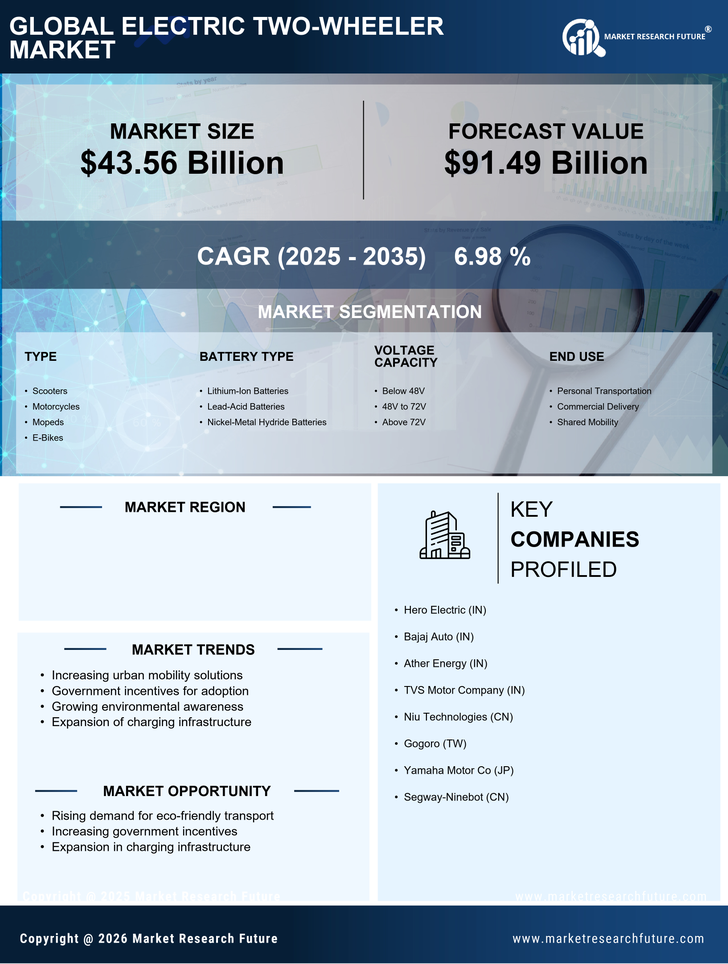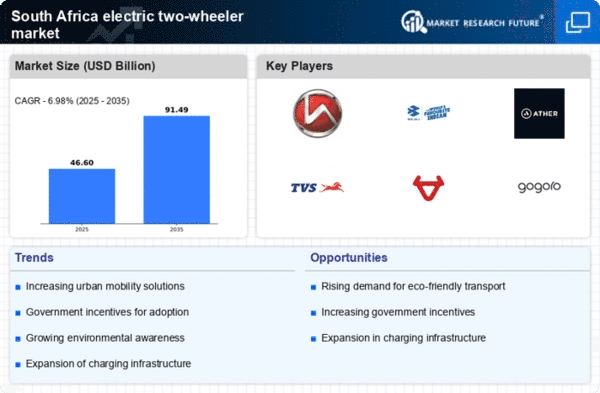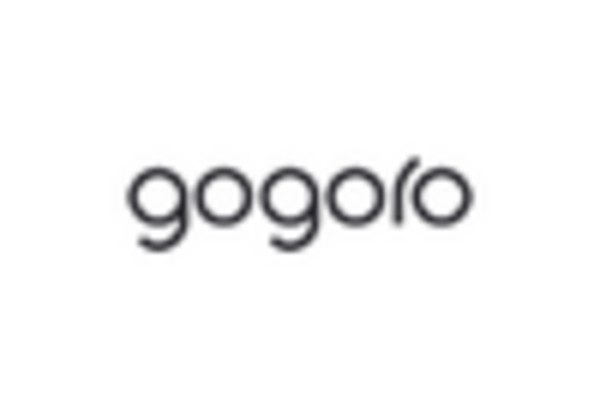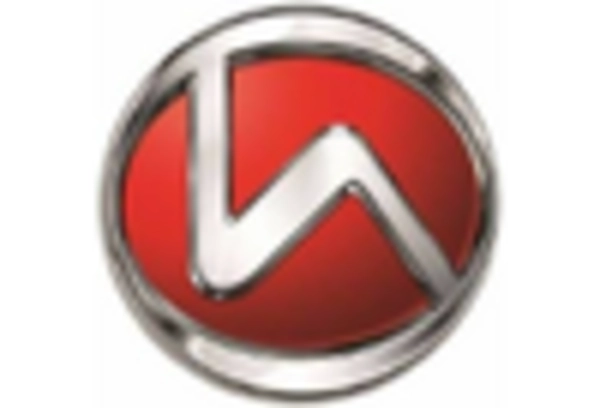Rising Fuel Prices
The escalating cost of fossil fuels in South Africa has become a pivotal driver for the electric two-wheeler market. As petrol prices continue to rise, consumers are increasingly seeking cost-effective alternatives for their daily commutes. The electric two-wheeler market offers a compelling solution, with operational costs significantly lower than traditional vehicles. For instance, the cost of charging an electric two-wheeler is often less than 50% of the equivalent fuel cost for a petrol bike. This shift in consumer behavior is likely to accelerate the adoption of electric two-wheelers, as individuals and businesses alike look to mitigate their transportation expenses. Furthermore, the potential for savings on maintenance and fuel can enhance the appeal of electric two-wheelers, making them a financially attractive option in the current economic climate.
Government Regulations on Emissions
In response to growing environmental concerns, the South African government is implementing stricter regulations on vehicle emissions. These regulations are likely to create a favorable environment for the electric two-wheeler market, as electric vehicles produce zero tailpipe emissions. As traditional internal combustion engine vehicles face increasing scrutiny and potential penalties, consumers may be incentivized to transition to electric two-wheelers. The electric two-wheeler market stands to gain from this regulatory shift, as it aligns with national goals for reducing carbon footprints and promoting sustainable transportation. Furthermore, compliance with these regulations may lead to additional incentives for consumers, such as tax breaks or subsidies, further stimulating market growth. The alignment of government policy with environmental objectives could significantly enhance the appeal of electric two-wheelers in South Africa.
Urbanization and Traffic Congestion
Rapid urbanization in South Africa is contributing to increased traffic congestion, which in turn is driving the demand for electric two-wheelers. As cities become more densely populated, the need for efficient and agile transportation solutions becomes paramount. Electric two-wheelers are well-suited for navigating congested urban environments, offering a practical alternative to larger vehicles. The electric two-wheeler market is likely to benefit from this trend, as commuters seek ways to avoid traffic jams and reduce travel times. Additionally, the compact size of electric two-wheelers allows for easier parking, further enhancing their attractiveness in urban settings. With the urban population projected to grow, the demand for efficient transportation solutions is expected to rise, positioning electric two-wheelers as a viable option for city dwellers.
Increased Focus on Sustainable Transportation
There is a growing emphasis on sustainable transportation solutions in South Africa, which is likely to benefit the electric two-wheeler market. As awareness of climate change and environmental degradation rises, consumers are becoming more conscious of their transportation choices. Electric two-wheelers, with their lower environmental impact compared to traditional vehicles, are increasingly viewed as a responsible choice. This shift in consumer mindset is expected to drive demand for electric two-wheelers, as individuals seek to align their purchasing decisions with their values. Additionally, businesses are also recognizing the importance of sustainability in their operations, leading to potential fleet conversions to electric two-wheelers. The electric two-wheeler market may experience growth as both consumers and companies prioritize eco-friendly transportation options.
Technological Innovations in Charging Infrastructure
The development of advanced charging infrastructure is emerging as a crucial driver for the electric two-wheeler market. In South Africa, the expansion of charging stations and the introduction of fast-charging technologies are likely to alleviate range anxiety among potential users. As charging networks become more accessible, the practicality of owning an electric two-wheeler increases, encouraging more consumers to make the switch. The electric two-wheeler market could see a surge in adoption rates as charging times decrease and the availability of charging points improves. Moreover, partnerships between private companies and local governments to enhance charging infrastructure may further bolster market growth. The convenience of charging options is expected to play a significant role in shaping consumer perceptions and driving the transition to electric mobility.

















